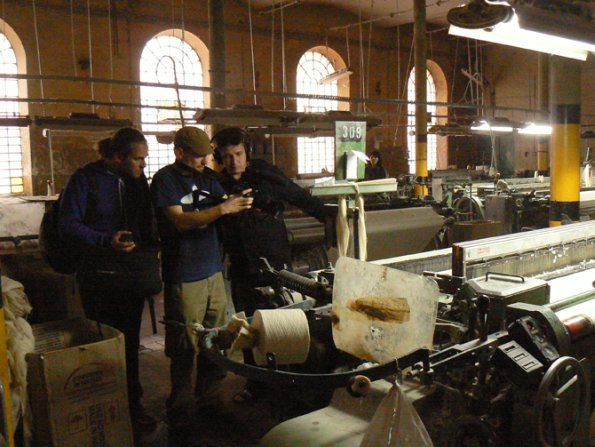Fashion Fights Poverty on revitalizing communities through creativity.
By Stephie Hass
Last week, Fashion Fights Poverty (FFP) held a Dress Responsibly Film Screening and Eco-Ethical Forum featuring the Detroit Lives! documentary “After the Factory” and a panel discussion.
“After the Factory” came about when a man in Lodz, Poland, emailed Philip Lauri of Detroit Lives! after seeing some of the local creative agency’s work to spotlight innovation, opportunity and creativity in Detroit. The writer was struck by the similarities of the two cities — both former industrial giants now facing high unemployment and population decline. The two struck up a correspondence and Lauri became fascinated by the parallel struggles of the far-flung communities.
“[The film] was emotional. Seeing the cities and people in ruins, you’re seeing people using creativity to bring light and motivate people,” said Yvette Castro, vice president of research and programs at FFP. “Using creativity to alleviate poverty, these people have taken that essence and they’re making that happen.”
The panel discussion focused on how individuals can build that creative community here in Washington. Panelists included Marga Fripp of Empowered Women International, who helps artistically inclined women who are immigrants and refugees in the Washington area with entrepreneurship and business tools; Philip Lauri of Detroit Lives!; and Bianca Alexander of Conscious Living TV, a media company that draws attention to sustainable living.
“Both cities are being turned around by creative evolutions that are restoring faith in a community, by people taking an active role and the empowerment that comes through that,” said Katherine Limon of My Signature Look, who moderated the discussion. “It was an eye opener that this doesn’t have to happen just in Detroit. It’s here in D.C.”
Attendees ran the gamut from the fashion and nonprofit scenes to locals interested in the subject matter. The takeaway message was that art and community spirit can be applied to any community.
“It’s about how to get inspired and find the positivity,” said Castro. “[There was] one story about a man who had seen a run-down lot and turned it into a community garden. Everyone in the neighborhood now eats from that garden. More cities could do this.”

